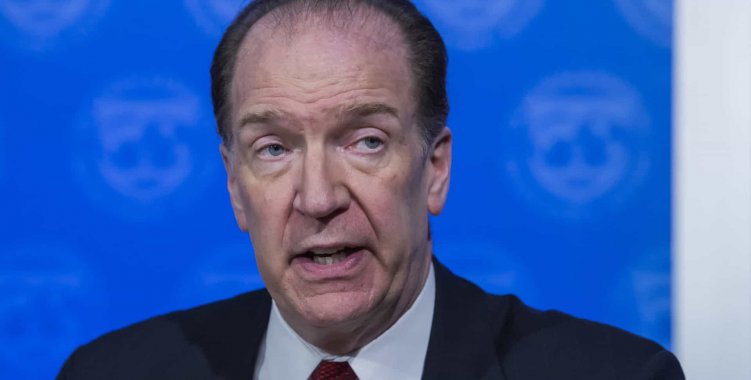"We need creditors and debtors to avoid violations of the noncommitment clause in our relations; for example in Angola we are easing mortgages, releasing collateral and repairing the open crack in the noncommitment clause regarding the World Bank [impossibility to contract new debt that diminishes the capacity to pay the current one]," David Malpass said during a speech last week at a high-level meeting on debt, and consulted this Friday by Lusa.
At that meeting, which was attended by several G20 finance ministers and also attended by the finance minister, Vera Daves, the president of the World Bank also pointed out, regarding Angola, that "one of the great challenges for our technical assistance team is the disclosure of all the government's financial commitments, including the volume of public debt and with state guarantees, both implicit and explicit, including the vulnerabilities of public companies.
In his speech at the High Level Ministerial Conference, Malpass argued that "transparency will make debt and investment more productive, help accountability and support economic recoveries that are vital for poverty reduction" and added that "in the medium term, it can lead to more investment in developing countries, with more and better financing techniques, which is a big step towards our goal of achieving good development results, where all incomes rise, not just the incomes of elites".
The World Bank President stressed that "financial conditions have not improved over the past year" and pointed out that "with the pandemic and economic confinement, financial stress has worsened significantly in recent months, through recessions, unprecedented capital outflows and declines in exports and remittances".
For the leader of the largest multilateral financial institution, progress is being made in extending debt relief to the most fragile countries, but more needs to be done, starting with the extension of the moratorium until the end of 2021 to give economies time to recover from the economic crisis caused by the covid-19 pandemic.
"I think we should extend the Debt Service Suspension Initiative (DSSI) during 2021 given the severity and long-term nature of the crisis", he argued, "there are already many countries with extremely problematic debt, and many more will have problematic debt before the crisis is over".
So, he continued, "in these circumstances postponing debt payment will only 'push the problem with the belly' and, in these cases, we need not only to reduce debt service today, but to reduce debt service tomorrow and permanently, which will create light at the end of the debt tunnel".
A "systematic reduction in the volume of sovereign debt is the only way to restart growth, make new investments possible and profitable, and avoid an even longer debt trap," argued the banker.
Among the 'terms of reference' left at the July 8 meeting, which serves as the launch pad for the meeting that the G20 finance ministers and central bankers will have this weekend, David Malpass also pointed to the need to increase the scope of debt relief actions and everyone's participation in this effort.
"All official bilateral creditors, including public banks, need to participate in debt suspension, and we should resist efforts to limit the scope of debt covered by the DSSI, it should cover all long-term external public debt and state-guaranteed debt, not just public and explicitly state-guaranteed debt," he pointed out.
On the other hand, he added, "more clarity is needed in the classification and disclosure of all debt instruments, including long-term bilateral trade lines, which are often used as sources of funding with multi-annual commitments, as we have seen in Mongolia, and which undermine macroeconomic stability".
Finally, he argued, "commercial creditors need to give comparable treatment, to discontinue debt payments to the poorest countries, particularly those that depend on donations under the International Development Association.







